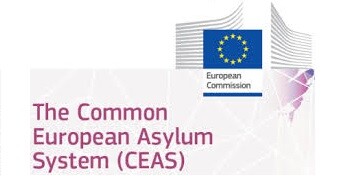Position paper on the proposed reform of the Common European Asylum System

Consortium of Migrants Assisting Organizations in the Czech Republic (Consortium) [1] has been closely following the proposals on the reform of the Common European Asylum System (CEAS) put forward by both the European Commission and the Council. This policy brief aims to summarize the Commission’s proposals published in the spring/summer 2016 in light of further developments, and to articulate a reasoned assessment, based on the experience of our members and the reality facing our country, our region and Europe as a whole.
In response to the so-called refugee crisis of 2015, which had exposed the shortcomings of the existing legal and institutional framework, the European Commission began working on a complex proposal for the reform of the CEAS. On 4 May 2016, it presented the first part of a reform package entitled Towards a Sustainable and fair Common European Asylum System[2] which includes a draft regulation setting out rules and mechanisms for determining the Member State responsible for processing an application for international protection[3]. In July 2016, the second part of the package was made public, under the title Completing the reform of the Common European Asylum System: towards an efficient, fair and humane asylum policy[4].
The Consortium welcomes the Commission’s initiative for the creation of a real common asylum system. Only a common asylum system can prevent a race to the bottom among Member States in dealing with asylum-seekers, discouraging potential applicants from seeking asylum on their soil. Moreover, faced with the absence of a common system, some Member States are succumbing to substantial migration pressure while others aren’t prepared to play a role in a common solution.
- Illegal obstacles to the entry of asylum-seekers to Member States’ territory and their admission to the asylum procedure (such as border pushbacks and outright rejection of asylum claims);
- the use of detention as a deterrence tool for refugees in violation of European Court of Human Rights’ rulings;
- intolerably prolonged asylum proceedings and low quality of asylum decisions which are then often repeatedly repealed in court;
- dysfunctional sanction mechanism for Member States who constantly violate EU law (e.g. Hungary not applying the Dublin Regulation or the Czech Republic violating its obligation to provide free legal aid in the asylum and repatriation procedures.)
[1] The Consortium is an umbrella organization comprising of 18 NGOs working on the topics related to migration. See http://www.konsorcium-nno.cz/en/index.html .
[2] European Commission - Press Release, Towards a Sustainable and Fair Common European Asylum System. Brussels, 4 May 2016. http://europa.eu/rapid/press-release_IP-16-1620_en.htm .
[3] European Commission, Proposal for a REGULATION OF THE EUROPEAN PARLIAMENT AND OF THE COUNCIL establishing the criteria and mechanisms for determining the Member State responsible for examining an application for international protection. COM(2016) 270 final. Brussels, 4 May 2016. http://ec.europa.eu/dgs/home-affairs/what-we-do/policies/european-agenda-migration/proposal-implement ation-package/docs/20160504/dublin_reform_proposal_en.pdf .
[4] European Commission - Press Release, Completing the reform of the Common European Asylum System: towards and efficient, fair and humane asylum policy. Brussels, 13 July 2016. http://europa.eu/rapid/press-release_IP-16-2433_en.htm .